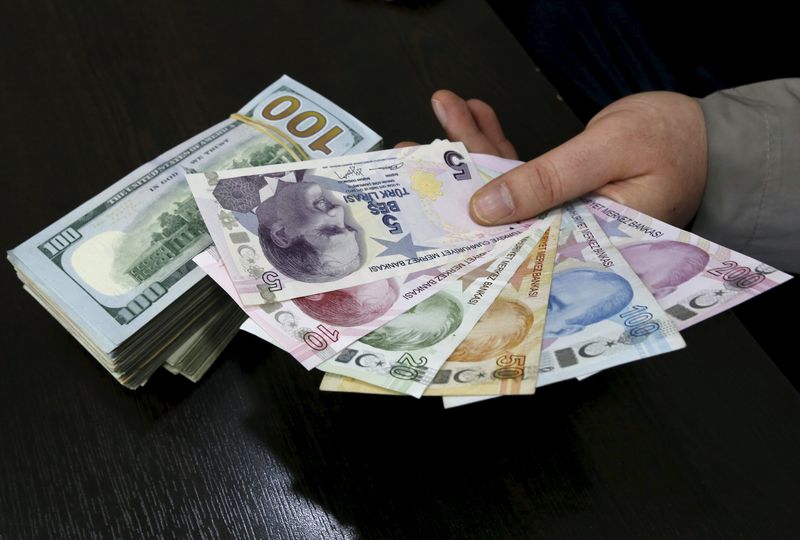* Turkish lira climbs more than 2 pct vs dollar
* Lira recovers some ground after sliding 5 pct on Friday
* Yen slips broadly as safe haven demand wanes
* New Zealand dollar falls after soft CPI data (Updates prices, adds comments)
By Masayuki Kitano
SINGAPORE, July 18 (Reuters) - The Turkish lira rose against the dollar and the safe-haven yen fell broadly on Monday in the wake of a failed Turkish coup over the weekend, easing investor concerns about political uncertainty and geopolitical risks.
The Turkish lira recovered some of the losses suffered on Friday when it slid nearly 5 percent as news of the coup attempt spooked investors.
In Asian trade on Monday, the lira last traded at 2.9575 TRYTOM=D3 , up roughly 2.1 percent on the day.
Turkish authorities rounded up nearly 3,000 suspected military plotters on Saturday and ordered thousands of judges to be detained after thwarting a coup to topple President Tayyip Erdogan. yen sagged as investor risk aversion eased. The dollar rose 0.4 percent to 105.35 yen JPY= . The euro gained 0.8 percent to 116.61 yen EURJPY=R . Against the dollar, the euro was up 0.3 percent at $1.1065 EUR= .
The yen is regarded as a safe haven currency partly because of Japan's net creditor status. As a result, the yen tends to rise in times of market stress, but often comes under pressure when investor risk appetite improves.
The dollar will probably take a breather in the near term, after its sharp rally against the yen last week, said Satoshi Okagawa, senior global markets analyst for Sumitomo Mitsui Banking Corporation in Singapore.
"I don't expect the dollar to fall below 100 yen, but it will probably have a hard time rising above 107 yen," he said.
The yen had slid more than 4 percent against the dollar last week for its worst weekly performance since late 2009, pressured by speculation that Japan might adopt more aggressive economic stimulus measures, namely "helicopter money" handouts to residents to encourage spending.
While analysts are sceptical that Japanese authorities would resort to such measures, the chatter about more aggressive stimulus has put added focus on whether the BOJ will unveil more monetary easing at its policy meeting in late July.
Traders said there was limited reaction to a Financial Times report saying that Japan's SoftBank Group Corp 9984.T has agreed to buy ARM Holdings PLC ARM.L for 23.4 billion pounds ($31 billion). noted that details of the deal and how much foreign exchange flows it might generate were unclear.
The New Zealand dollar fell after New Zealand's consumer price index rose less than expected in the second quarter and led the market to price in a higher probability of an interest rate cut in August. New Zealand dollar set a 2-week low of $0.7068 and was last trading at $0.7097 NZD=D3 , down 0.3 percent on the day.
Given the prospects for a rate cut in New Zealand and the possibility of one or two rate increases by the U.S. Federal Reserve later this year, the New Zealand dollar might fall below 70 U.S. cents and towards the mid-60s by year-end, said Steven Dooley, currency strategist for Western Union Business Solutions in Melbourne.
